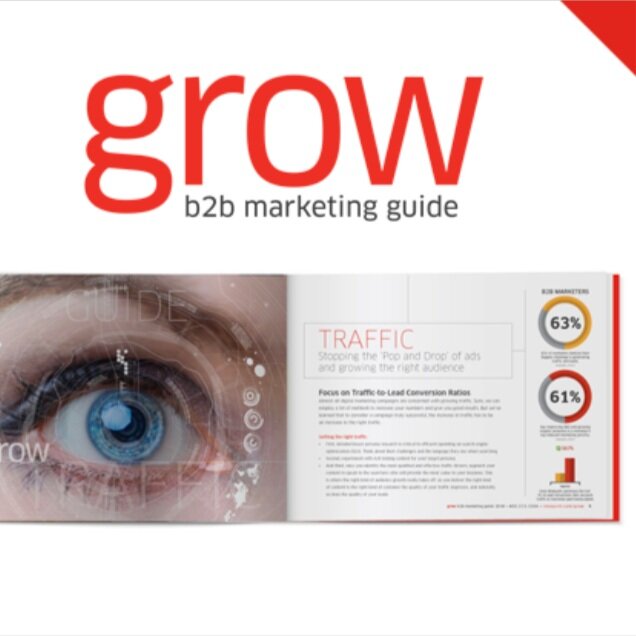The rise of Martech has revolutionized enterprise marketing and customer engagement. With these tools, businesses could quickly leverage the advancement in computing to keep up with modern customer behaviors, analyze buyer data, personalize customer experiences, and automate marketing campaigns. More importantly, Martech allowed teams to operate flexibly and collaborate effectively to achieve revenue goals.
However, the speed at which Martech evolves means that businesses always have to keep up with the latest and greatest technologies. Making it difficult to optimize each one or use them collaboratively to achieve synergy and marketing maturity. This results is a collection of Martech tools that poorly meet the specific needs of each business and adopt long-term marketing goals.
Yet, the future of marketing is sure to become more data-driven as the market continues to become more sophisticated, making Martech even more essential. This article delves into how you can achieve your long-term goals and achieve marketing maturity by building an effective marketing stack that scales with you.
MarTech Stack Essential
Having the right stack of marketing tools helps you lay the foundation to scale your business — therefore, they are called MarTech stack essentials. These tools are essential to the success of any marketing strategy and help you adapt to changing market conditions. MarTech stack essentials include:
Customer Relationship Management (CRM) Software
CRM software serves at the heart of all your marketing tools. It helps you manage customer interactions and relationships. CRM tools centralize customer data, track customer behavior, organize customer interactions, and provide insights into customer behavior. This helps you provide a rich experience for your customers and personalize your interactions.
Consequently, it is easy to track the advancement of leads through your pipeline and optimize your sales process with robust and complete data. Insights from CRM tools allow you to create effective, personalized, and targeted marketing campaigns successfully.
In addition, CRM tools help your teams to share information effectively and operate with data-driven insights. This effective collaboration helps you stay ahead of market trends and discover new avenues to drive revenue growth. Examples of CRM software include Salesforce, HubSpot, and Microsoft Dynamics 365.
Marketing Automation Platforms
Marketing automation platforms automate repetitive marketing tasks like email campaigns, social media posting, and lead nurturing. By taking care of routine and recurring tasks, these tools free up resources for your marketing team to focus on high-level strategy and creative outputs.
Marketing automation platforms work together with other tools in your MarTech stack to track and analyze your customer preferences and deliver personalized and targeted campaigns. They help you improve your lead generation and sales conversion process at minimal costs while contributing to your data pool. Examples of marketing automation platforms include Marketo, Pardot, and Eloqua.
Email Marketing Tools
Email marketing tools help you to create targeted email campaigns and manage your email interactions. They help you segment your email lists into targeted categories and deliver personalized emails. You can also track and manage the performance of your email campaigns with key metrics like open rate, click rate, and conversion rates.
Many of these tools also help you keep your email channels clean and maintain the best practices. That is, you avoid blacklists that can render your email campaigns ineffective. Examples of email marketing tools include Mailchimp, Constant Contact, and ConvertKit.
Content Management Systems (CMS)
CMS platforms allow you to manage your website content and create an engaging online customer experience.
With CMS platforms, you can create, publish, and optimize your website content for search engines. They also help you collect and analyze customer data to optimize your website content and improve customer engagement. Examples of CMS platforms include WordPress, Drupal, and Joomla.
Social Media Management Tools
Social media management tools help you to create an engaging and consistent presence on social media platforms. They help you manage your content across social media platforms, schedule posts, and track performance.
Social media management tools make it easy to stay on top of your customer's minds and develop your brand awareness and authority through simple and daily interactions on social media sites. Examples of social media management tools include Hootsuite, Buffer, and Sprout Social.
Developing a Martech Stack That Scales
To leverage a Martech stack to scale and achieve your long-term goals, you cannot afford to collect them arbitrarily; instead, you need to develop them based on a strategy and strong foundational principles. That way, you can get the best out of each tool and adapt quickly to market changes. Here are some strategies for building a formidable Martech Stack.
Focus on Flexibility
When building your Martech stack, look for tools most compatible with your industry and easily customizable to your specific needs. Flexibility also means the tools should be compatible and easily integrated with your other Martech and productivity tools.
Prioritize Data Management
Effective data management is key to marketing maturity and scaling. Being able to organize, analyze, and apply insights from data helps you stay ahead of the market. Therefore, you should choose tools that make it easy to store and access data the best.
Invest in the Essentials
Many Martech tools offer outstanding tactics and advantages that can easily sway your choices. However, since it is difficult to know which tactics can survive in the long run, it is vital to invest in a strong foundation of Martech essentials first. This includes email marketing, analytics, and content management tools that provide a reliable base that can be built upon in the future.
Evaluate Continuously
Regular evaluation of your Martech stack to assess its effectiveness in meeting your revenue is vital to building an adaptable stack. Frequently monitoring the results of your stack and individual tools help you replace ineffective ones while creating a clear direction for improving them. This is another area where effective data is important.
Adopt a Culture of Experimentation
Only by trying out new tools and new angles can you become innovative in your marketing approach. Continuous experimentation will keep you ahead of your competition and help you stay creative and find new advantages in a saturated market.
Leveraging the Power of Your MarTech Stack to Scale
Building a robust MarTech stack requires you to invest in essential tools that make up the foundation of modern marketing strategies. Only then can you stay competitive and take your business to the next level.
When you combine the right Martech stack with an effective strategy, you become resistant to market disruption, reaching a level of adaptability that enables you to consistently reach your revenue goals and ultimately become a leader in the industry. Relequint is a partner that puts long-term revenue growth first. Contact us today, to leverage the power of your Martech stack to scale and take your business to the next level.







 By
By 
